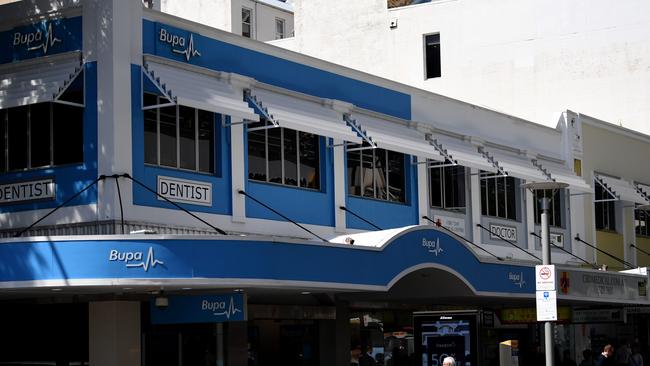Bupa processing 22,000 assistance applications with $50m set aside for coronavirus help
More than 22,000 applications for assistance received since Bupa launched its program a month ago.

Australia’s largest health insurer, Bupa, has had more than 22,000 applications for assistance since it launched its program a month ago, setting aside $50m to help customers as part of broader moves from the private health insurance industry.
Premium increases have been frozen for six months as the coronavirus crisis hits the economy and customers with job losses, retail shutdowns and health concerns.
Other insurers are offering additional premium discounts or policy suspensions, with some even offering healthcare to those who have suspended their policies.
Bupa said it had processed 65 per cent of the more than 22,000 applications for assistance that have already been made since their $50m policy launched on 26 March.
Managing director of health insurance Emily Amos said the moves were a significant investment aimed at keeping costs down.
“The assistance provided will vary depending on the individual circumstances of a customer, but could include a period of the premium waiver, premium discounts or suspension of policies,” she said.
“Of the customers we have assisted so far, there is a real level of gratitude and appreciation. Importantly, this has meant that our customers have been able to continue to be covered under their health insurance policies.”
Based on current trends the insurer believes there’s no risk customer demand will exceed $50m.
Bupa said its UK health insurance arm has rolled out a similar program and the assistance was in line with other measures offered to customers during crisis situations.
Demand for telehealth through Bupa has soared, with claims for physiotherapy and psychology surging since Easter, while elective procedures have dropped.
“Psychology was the early pace setter, most likely because it was easiest to adopt, however, physiotherapy has since overtaken it as the most popular with speech pathology the third most common telehealth claim,” said Ms Amos.
Canstar Group executive financial services Steve Mickenbecker said many private health insurers were increasing their offerings during the coronavirus crisis, including expanding lung and heart coverage to Bronze and Basic policies.
“When the virus became a pandemic a lot of insurers said we’re not going to cover for this or have tougher underwriting and suspended policies. The health insurance industry went in the other direction and said we will extend health insurance coverage to all our policies,” he said.
But Mr Mickenbecker said the viral crisis could benefit their costs if cases continued to decline.
“There’s a lot of elective surgery that’s been cancelled. Their claims will be lower there,” he said.
“If anyone requires ICU and has to go on to a ventilator then it’s massive and that treatment can take weeks. For serious cases it will be an incredibly expensive treatment.”







To join the conversation, please log in. Don't have an account? Register
Join the conversation, you are commenting as Logout